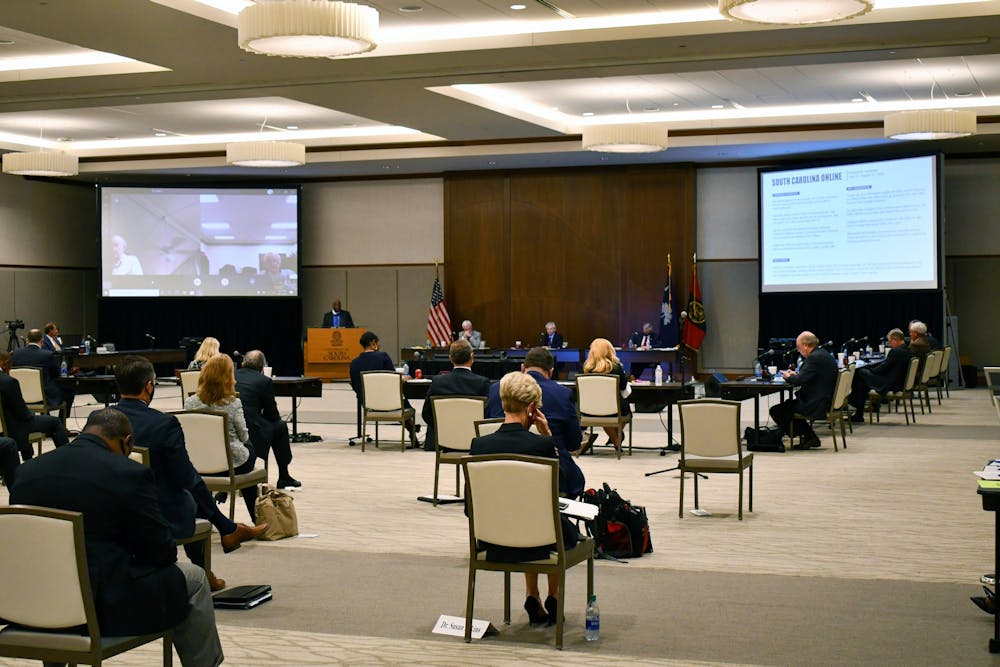With many reaffirming statements regarding the university’s functionality in the pandemic, the Board of Trustees met Friday to discuss the state of the university and to approve several projects.
Deborah Beck, executive director of Student Health Services, provided new information on the university’s COVID-19 efforts.
In addition to information now available on the university’s COVID-19 dashboard, Beck said 80% of students who test positive are asymptomatic.
Beck said this asymptomatic rate “makes it a little bit more difficult to find."
“The students that have had symptoms have been extremely mild,” Beck said.
Although no students, faculty or staff have been hospitalized due to COVID-19, Beck said, four students were evaluated by emergency services and released shortly after.
In addition, Beck said, the CDC is predicting an increase in cases following Labor Day.
“We are looking at all the different models throughout the country to tell us what we're doing, not only are we doing those internally, but we're also monitoring those from the CDC,” Beck said.
Associate VP for Finance and Budget Kelly Epting reviewed the ways in which COVID-19 has financially impacted the university.
The university has suffered financial losses from the pandemic. Original loss estimates of $59 million, though, were inaccurate, with the university losing $12 million overall when compared to the last fiscal year.
Although much lower than anticipated, this is “still a sizable amount,” Epting said.
Some of these losses may come from one-time expenditures to fight COVID-19, such as personal protective equipment and outfitting classrooms with cameras. Out of $127 million allocated to the university’s year-by year costs, $35.5 million was allocated for these COVID-related expenditures. Epting said $18.5 million has been spent so far.
The university is doing what it can to regain these costs, Epting said.
“We are doing a very good job of labeling each of these expenditures, capturing if we can apply for reimbursement," Epting said. "We are being aggressive on that count."
Several program terminations were approved today as well. The terminated programs were entirely graduate programs. The children’s law certificate, the IMA in arts education and several Master of Public Health (MPH) programs (General MPH, MD/MPH, PharmD/MPH and a public health certificate) were cut.
No indication was given as to why these programs were cut. According to the Arnold School of Public Health's website, it says these programs are undergoing "restructuring."
Finally, the second stage of new parking adjacent to Greek Village was approved.
This lot was originally thought up out of concern for members of Greek Life, said university architect Derek Gruner, especially those who eat in Greek Village.
“When they use their own cars, they have difficulty finding parking spaces nearby,” Gruner said.
Approval of this lot comes after several years of fees levied on Greek students, as well as cancelled plans for a garage in the same area. The lot is planned to have approximately 300 spots and will be located on the 700 Devine block across the street from Greek Village.
The lot’s construction budget is $4,240,000, all paid for by Greek student parking fees. The total amount raised by these fees is $7.2 million from 2017-2020, when it was terminated.

